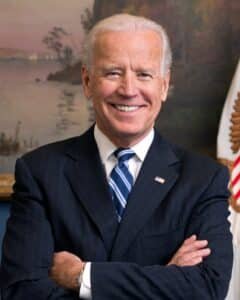Jay Shetty and Boomerang Plagiarism Allegations

Jay Shetty is a British author, YouTuber and influencer best known for his pop psychology inspirational message and his encouragement for others to seek a more spiritual life.
A major part of his story, and his appeal, is his claim to have lived as a monk in India for three years. He claims to have returned to the UK in 2013 and has since grown a massive empire that includes two bestseller books and a life-coaching school that charges $7,400 per term.
However, a new report by John McDermott at The Guardian has cast serious doubts on the veracity of Shetty’s claims. According to McDermott, those close to Shetty have said that he spent very little time in India during the years in question, instead spending most of that time in London, often recording YouTube videos.
The report also examines accreditation and partnership claims by Shetty’s school. Shetty’s school claims that it is approved by Ofqual, a UK government institution that regulates qualifications in the country. However, Ofqual claims that it has no such oversight over the school and would be reaching out to it to have such claims removed from the website.
Likewise, the school claims to have “been confirmed by the University of Chichester” though the school says no such relationship exists.
However, among the new allegations of fabrication an old scandal came to light again.
In 2019, YouTuber Nicole Arbor published a video entitled Jay Shetty is Full of SH*T!, which highlighted instances in which Shetty’s social media copied memes and posts from others, often deliberately cropping out attribution before adding his own name to the work.
Following the video and additional allegations, Shetty ordered his staff to add attributions to his posts. He ultimately deleted more than 100 posts and hired a crisis PR firm to handle the case. According to The Guardian, Shetty continues to use content from other people without permission but does include attribution when doing so.
With no new plagiarism allegations, it seems odd this was mentioned in a lengthy article about new revelations involving Shetty. However, Shetty is not the first celebrity to deal with boomerang plagiarism accusations.
In fact, such allegations tend to come back repeatedly, no matter how much time has elapsed since then.
Old Plagiarism, New Story

In 1987, President Joe Biden, then running in the Presidential primary, was accused of having plagiarized both in a speech that he gave during that campaign and in a paper that he submitted while a law school student in the 1960s.
Those allegations contributed to him bowing out of the race, in which he was already struggling. However, both sets of allegations came back when he was nominated to become Vice President in 2008 and then again when he ran for President in 2020.
By this point, the oldest of the allegations were over 50 years old and had been examined at least three times in the national news since. There really was nothing new or interesting to say.
However, that is surprisingly common for plagiarism allegations, they tend to surface and resurface whenever they are convenient, even if they are already widely known and the issues have been corrected as much as possible.
Sometimes, this is wholly appropriate. For example, in 2020 Ruth Shalit, then using the name Ruth S. Barrett, published a later-retracted article in the Atlantic, her past as a famous plagiarist came to light. Her new article was determined to contain fabrications and other deceptions and her past plagiarism shined a light not just on the Atlantic’s attempts to hide who the author was, but their lack of guardrails and fact-checking on her work.
Other times, however, it is more dubious and serves no purpose other than as an attack. For example, Martin Luther King Jr.’s plagiarism, in particular in his dissertation, is routinely highlighted by those critical of his message even today. Despite the fact that the plagiarism took place nearly 70 years ago, it was examined 30 years ago by Boston University and has little to do with his actual message.
It’s an extension of the weaponization of plagiarism, but not one where we are looking for new plagiarism, but instead re-litigating previous cases even when they are irrelevant to whatever the current issue is but are a convenient way to attack a person’s character or reputation.
That does nothing to help improve academic/journalistic/artistic integrity or improve the understanding of plagiarism more broadly.
Finding Balance and Nuance
With the recent allegations involving various university officials, one of the points I have tried to impress both here, on my YouTube channel and when interviewed by the press is that plagiarism is a difficult and nuanced topic.
Plagiarism describes a spectrum of activities from poor paraphrasing or forgetting quotation marks all the way to whole say copying and claiming someone else’s work as your own.
There is a real need not just for academics and editors, but the public, to understand that, while all plagiarism is bad, it can vary wildly in terms of severity and response required.
While that is true, time is another nuance that must be weighed. When a plagiarism happened and how the plagiarist has performed since then also has bearing on what we should think about the incident and what bearing it should have on the alleged plagiarist’s future opportunities.
However, since past plagiarism often does end up being relevant, it is important to strike a balance between simply forgetting and never moving forward. There are good reasons there is nothing like a statute of limitations on plagiarism claims.
People should be aware of past issues, but that awareness should come with context and nuance. Second chances should be given when appropriate, but those giving them should know that they are second chances and treat them as such.
Overall, finding a balance is difficult, but it is important. That is not because plagiarism is not serious, but precisely because it is serious.
Bottom Line
So where does this all leave Jay Shetty and the recent coverage of him?
The Guardian was right to mention the allegations. It helps contextualize the new allegations and make it clear that this is not the first time he has faced public challenges regarding his ethics.
However, the bigger issue is with other coverage of the allegations, which presents the plagiarism allegations as being new and/or makes no mention that he attributes sources now (even if he still shares without permission).
So, while the plagiarism allegations are relevant in this context, it is still important that they be put in the proper framing. The Guardian, overall, did that well. Later publications, less so.
If there is one thing that I have learned over the past 18 years, it is that plagiarism is not an easy topic. It is complicated, difficult to talk about and deals with social/ethical norms that are constantly shifting and evolving.
That said, one good first step is giving all the information that one can when talking about allegations of plagiarism. Putting the situation in the proper framing and context can help others make more nuanced decisions about the allegations and examine them on their own terms.
It is a small step, and one many readers may not engage with even when offered, but it is a crucial step, nonetheless.
Top Photo of Jay Shetty: User:IceTheAlohaGod, CC BY-SA 4.0, via Wikimedia Commons
Want to Reuse or Republish this Content?
If you want to feature this article in your site, classroom or elsewhere, just let us know! We usually grant permission within 24 hours.
